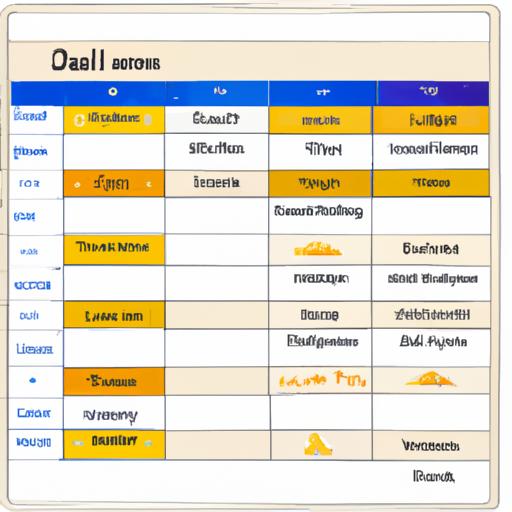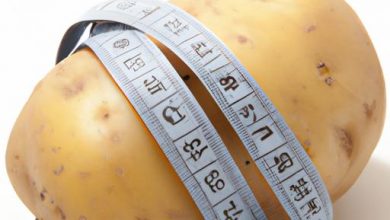How Much Nutrition is in Corn?
Corn is a staple food worldwide, loved for its sweet taste and versatility in many dishes. But how much nutrition is in corn, and what health benefits can it offer? In this article, we’ll explore the macronutrients and micronutrients found in corn, its health benefits, and the nutritional content of corn-based products.
Macronutrients in Corn

Corn is primarily composed of macronutrients, including carbohydrates, protein, fiber, and fat. One cup of cooked corn (166g) contains:
- Carbohydrates: 31 grams
- Protein: 5 grams
- Fiber: 3.5 grams
- Fat: 2 grams
Corn is a good source of complex carbohydrates, which provide energy to the body and are essential for brain function. The fiber in corn helps regulate digestion and can promote feelings of fullness, which may aid in weight management. Corn also contains a moderate amount of protein, making it a suitable addition to vegetarian and vegan diets.
Despite its reputation as a high-carb food, corn is relatively low in calories, with one cup of cooked corn containing only 143 calories. It’s also gluten-free, making it a safe option for those with celiac disease or gluten intolerance. Overall, corn is a nutritious and versatile food that can be incorporated into a balanced diet.
Micronutrients in Corn
In addition to its macronutrient content, corn also contains essential micronutrients that are important for overall health. One cup of cooked corn provides:
- Vitamin C: 17% of the recommended daily intake (RDI)
- Thiamine (vitamin B1): 24% of the RDI
- Folate (vitamin B9): 19% of the RDI
- Magnesium: 11% of the RDI
- Potassium: 10% of the RDI
- Phosphorus: 9% of the RDI
Corn is also a good source of antioxidants, including lutein and zeaxanthin, which are beneficial for eye health. These nutrients can protect against age-related macular degeneration and cataracts, which are common in older adults.
Overall, corn is a nutrient-dense food that can provide a variety of health benefits. Its combination of macronutrients and micronutrients makes it a valuable addition to any diet. In the next section, we’ll explore the specific health benefits of corn.
words)
Health Benefits of Corn
Consuming corn regularly can offer several health benefits, including:
Lowers Risk of Heart Disease
Corn is rich in fiber, which can help lower cholesterol levels and reduce the risk of heart disease. The fiber in corn binds to cholesterol in the digestive tract, preventing it from being absorbed into the bloodstream. Corn also contains plant sterols, which have been shown to lower LDL (bad) cholesterol levels. By adding corn to your diet, you can help support heart health and reduce the risk of heart disease.
Helps with Digestion
The fiber in corn can help regulate digestion and prevent constipation. The insoluble fiber found in corn passes through the digestive tract intact, adding bulk to stools and promoting regularity. Additionally, corn contains resistant starch, which acts as a prebiotic and promotes the growth of beneficial gut bacteria. These bacteria can help break down food and improve nutrient absorption, leading to better overall digestive health.
Boosts Immune System
Corn is a good source of vitamin C, an essential nutrient that plays a vital role in immune function. Vitamin C is a powerful antioxidant that can protect against oxidative stress and inflammation, which can weaken the immune system. By consuming corn, you can help support immune function and reduce the risk of infections and illnesses.
Corn-Based Products and their Nutritional Content
Corn is a versatile food that can be incorporated into many dishes and products. Some popular corn-based products include:
Cornmeal
Cornmeal is made by grinding dried corn kernels into a fine powder. It’s commonly used to make cornbread, muffins, and other baked goods. One cup of cornmeal (120g) contains:
- Carbohydrates: 95 grams
- Protein: 10 grams
- Fiber: 8 grams
- Fat: 2 grams
Cornmeal is a good source of complex carbohydrates, making it a suitable choice for energy-dense meals. However, it’s also high in calories and may not be suitable for those on a low-calorie diet.
Corn Flakes
Corn flakes are a popular breakfast cereal made from toasted corn flakes. One cup of corn flakes (28g) contains:
- Carbohydrates: 24 grams
- Protein: 2 grams
- Fiber: 1 gram
- Fat: 0.2 grams
While corn flakes are low in calories and fat, they’re also high in sugar and may not be the healthiest breakfast option. It’s important to choose corn flakes that are low in added sugars and to pair them with nutritious toppings like fresh fruit and milk.
words)
Corn-Based Products and Their Nutritional Content
Corn is a versatile ingredient that is used in many foods and products, including cornmeal, corn flakes, and corn tortillas. Here’s a breakdown of the nutritional content of each of these corn-based products:
Cornmeal
Cornmeal is a staple ingredient in many cuisines, including Southern and Mexican cooking. It’s made by grinding dried corn kernels into a fine powder. One cup of cornmeal (122g) contains:
- Carbohydrates: 95 grams
- Protein: 8 grams
- Fiber: 8 grams
- Fat: 2 grams
Cornmeal is high in carbohydrates and provides a good source of energy. It’s also rich in fiber, which can help regulate digestion and promote feelings of fullness. Cornmeal is a versatile ingredient that can be used in many dishes, such as cornbread, polenta, and grits.
Corn Flakes
Corn flakes are a popular breakfast cereal that is made from toasted corn. They’re often fortified with vitamins and minerals, making them a nutritious breakfast option. One cup of corn flakes (28g) contains:
- Carbohydrates: 24 grams
- Protein: 1 gram
- Fiber: 1 gram
- Fat: 0.1 grams
Corn flakes are low in fat and calories, making them a good option for those watching their weight. They’re also a good source of carbohydrates, providing energy to start the day. However, they’re often high in added sugar, so it’s important to choose brands that are low in sugar or sweetened with natural sweeteners.
Corn Tortillas
Corn tortillas are a staple in Mexican cuisine and are made from corn flour. They’re often used in dishes such as tacos, burritos, and enchiladas. One corn tortilla (24g) contains:
- Carbohydrates: 10 grams
- Protein: 1 gram
- Fiber: 1 gram
- Fat: 0.5 grams
Corn tortillas are low in calories and fat, making them a healthy option for those watching their weight. They’re also a good source of complex carbohydrates and fiber, which can help regulate digestion and promote feelings of fullness.
Conclusion
In conclusion, corn is a nutritious and versatile food that can provide a variety of health benefits. It’s a good source of macronutrients, including carbohydrates, protein, fiber, and fat, as well as essential micronutrients such as vitamins and minerals. Incorporating corn-based products into your diet, such as cornmeal, corn flakes, and corn tortillas, can provide a healthy and tasty addition to your meals. Whether you enjoy corn on the cob, cornbread, or corn chowder, there are many ways to incorporate this nutrient-dense food into your diet. So, start adding corn to your meals today and enjoy the many health benefits it has to offer!




